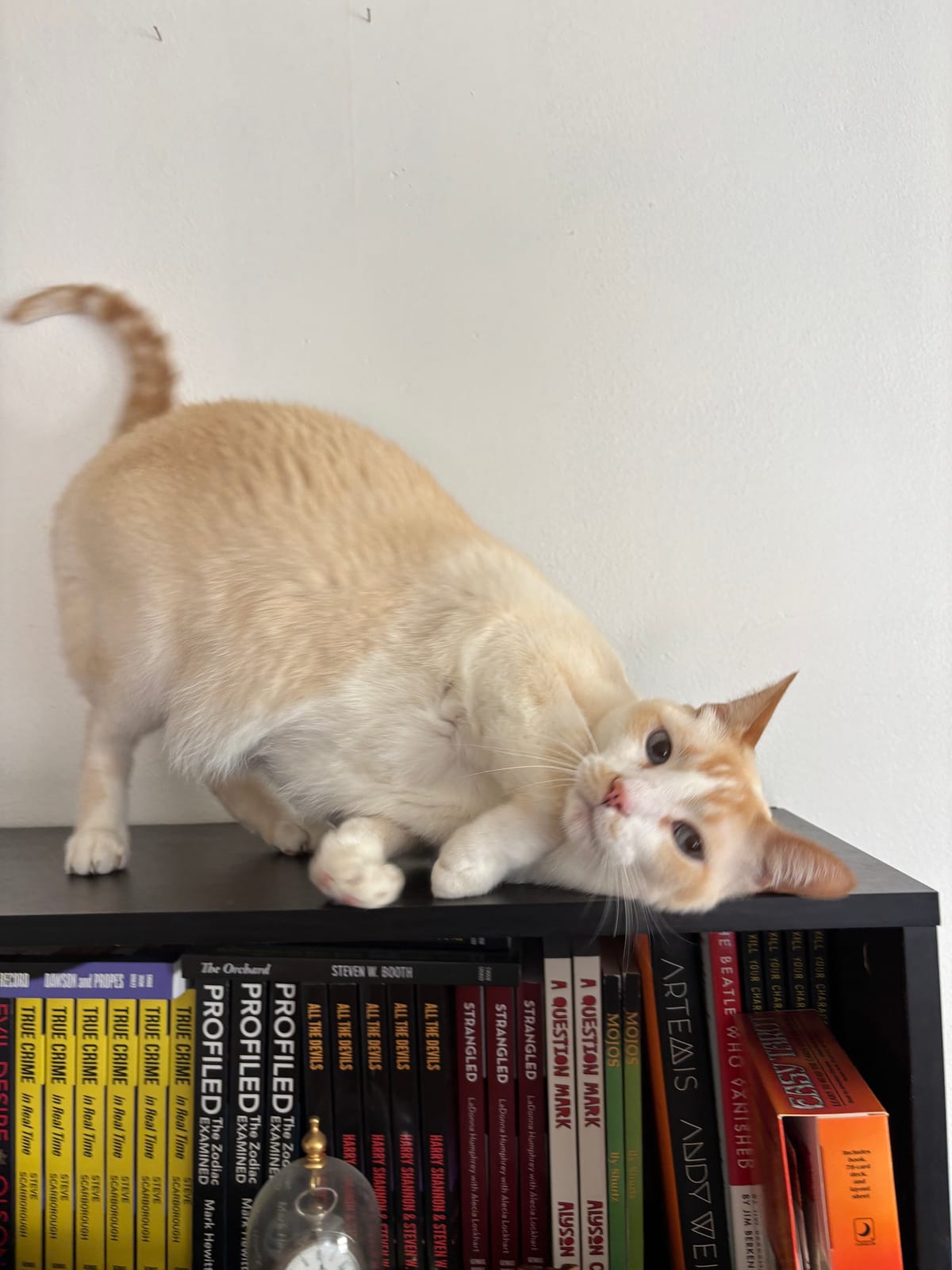The Consistency Project

This blog is intended to help anyone—particularly neurodivergents—learn consistency, self-kindness, and balance. —Steven Booth
This post is not about science. If you're not interested in science, skip the next paragraph. I won't tell you you'll be happy you did, but some of you might be. There's no accounting for taste.
Since 2023 (at least), I've been trying to make sense of my brain chemistry, my behavior, and my moods, because these are all interrelated. In June 2023, I did some serious (for me) research of the literature on neurotransmitters, which resulted in a document that described the behavior shifts associated with low and high tonic levels of dopamine and serotonin, including ADHD, bipolar disorder, schizophrenia, autism, borderline personality disorder, and probably a few others I haven't considered. It's a pretty good paper.
But the question became, what do I do with the information? It took me two more years, but I figured it out, and I wrote The Storm Keeper / The Kindness Hack books that hardly anyone has read but which describe what it's like inside and outside of low dopamine and serotonin and what to do about it for yourself or for a loved one. The conclusion I came to is, in a nutshell, love conquers all. Specifically, I came to the realization that shame, either from within ourselves or imposed on us from outside, doesn't solve any problems and actually makes things much worse. Whereas self-kindness is decidedly anti-shame and makes dealing with the behaviors associated with low neurotransmitter days so much easier. Going one step further, fierce kindness, which I define as kindness with no patience for shame, works even better. This goes for situations both inside and outside of the person who is experiencing the shame.
The Storm Keeper books are guidebooks for people who live with others who experience low neurotransmitter days (which are days when your brain just won't), and teaches fierce kindness for the neurological weather going on inside the neurodivergent brain. Storm Keepers don't stop the storm; instead, they provide a safe harbor in the tempest of the mind. Someone once asked me what it's like to live with a loved one with borderline personality disorder. I advised them that the loved one is just as freaked out by their behavior as you are, and fierce kindness is not something nice to have; it is mandatory.
Not long ago, I started tinkering with the idea of setting subconscious intentions in order to get automated responses to common situations. Like, when I leave the kitchen, I turn out the light. When I come into the house, I put my keys, hat, and wallet on the little shelf by the door. When I wake up, I have coffee. Some people call these subconscious intentions habits, and who am I to rename something as well known as that? What I learned is that the subconscious wants to make you right, and if you tell it something, it will look for any shred of evidence that you're right. Some people call this process affirmations, so for now I will too. If you tell yourself you're bad at math, then you are. If you tell yourself you're a math wiz in training (let's be modest for a moment), then math will be fun and simple. This is the subconscious doing its job. I called my approach to habits and affirmations The Glass Box, because most of the time habits are treated like a black box, where you put effort in and habits pop out magically. That's not how I operate. I describe the whole thing from beginning to end, and you can see each piece as it works.
Well, I didn't stop there. Back in 2023, I was introduced to Bradley Nelson's Emotion Code. The short version, for those of you who don't know, is that the Emotion Code is a method for taking the sting out of past traumas using a combination of Eastern medicine and muscle testing. Woo-woo stuff, right? Well, only in the sense that it's backed up by 5,000 years of research and is the basis for acupressure, acupuncture, and a whole lot of chiropractic work. You're welcome to dismiss it. I didn't. I find that it has high efficacy, and it is something that I'm good at, so I kept at it. Then, my assistant and dear friend Andrea Thorfinson introduced me to some ideas about chakra balancing (more 5,000-year-old woo-woo to keep or toss). Since I have a background (one could say a habit) of doing my own research and finding my own solutions, I realized that chakra balancing could be effectively accomplished using techniques similar to the Emotion Code. This led to The Harmony Code process. The core difference between Brad Nelson's approach and mine is that I start by honoring what's working and what's good and then look for imbalances that can be approached, cleared, and brought into alignment.
So, what do I have here? I have a neurotransmitter-aware, trauma-informed, fiercely kind framework for balancing brains, behavior, and energy in neurodivergent folks who have been largely disregarded by the self-help and wellness communities. Does this mean that neurotypicals are not welcome here? Of course not. Come, play with our toys. But I designed this with neurodivergence in mind, and that's who I feel deeply about helping.
That's the Consistency Project. That's what this blog is supposed to do: help anyone—but particularly neurodivergents—learn consistency, self-kindness, and balance. If you're down with that, you're in the right place.
The journey continues tomorrow.